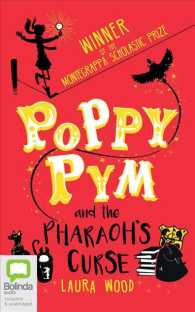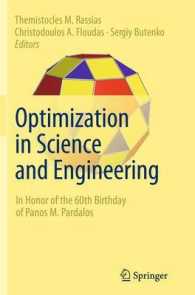基本説明
Lange and Powell argue that the First Amendment imposes absolute limits upon claims of exclusivity in intellectual property and expression.
Full Description
The original text of the Constitution grants Congress the power to create a regime of intellectual property protection. The first amendment, however, prohibits Congress from enacting any law that abridges the freedoms of speech and of the press. While many have long noted the tension between these provisions, recent legal and cultural developments have transformed mere tension into conflict. No Law offers a new way to approach these debates.
In eloquent and passionate style, Lange and Powell argue that the First Amendment imposes absolute limits upon claims of exclusivity in intellectual property and expression, and strips Congress of the power to restrict personal thought and free expression in the name of intellectual property rights. Though the First Amendment does not repeal the Constitutional intellectual property clause in its entirety, copyright, patent, and trademark law cannot constitutionally license the private commodification of the public domain.
The authors claim that while the exclusive rights currently reflected in intellectual property are not in truth needed to encourage intellectual productivity, they develop a compelling solution for how Congress, even within the limits imposed by an absolute First Amendment, can still regulate incentives for intellectual creations. Those interested in the impact copyright doctrines have on freedom of expression in the U.S. and the theoretical and practical aspects of intellectual property law will want to take a closer look at this bracing, resonant work.
Contents
Contents Preface xxx Acknowledgments xxx Part I. Intellectual Property in America: The Idea and its Merits 1 1. Unfair Competition and Trademarks 000 2. Patents, Copyright and Neighboring Rights 3. Exclusivity versus Appropriation: Some Questions and Costs 4. "Exclusive Rights" and the Constitution Part II. Intellectual Productivity and Freedom of Expression 5. Foreshadows: International News Service versus The Associated Press 6. Intellectual Productivity and Freedom of Expression: The Conditions of Their Coexistence Part III. The First Amendment in America: Some Chapters in a History of Debate 7. The Origins of the First Amendment and the Question of Original Meaning 8. The Sedition Act of 1798 and the First First Amendment Crisis 9. Justice Holmes and the Arrival of Balancing 10. Justice Black and the Absolute First Amendment Part IV. The Absolute First Amendment Revisited: The Amendment as a Prohibition on Power 11. Constitutional Absolutes in a Holmesian World 12. Forward to the Eighteenth Century Part V. Summing Up 13. Intellectual Property in the Image of an Absolute First Amendment Notes 000 Bibliographic Note 000 Index 000








